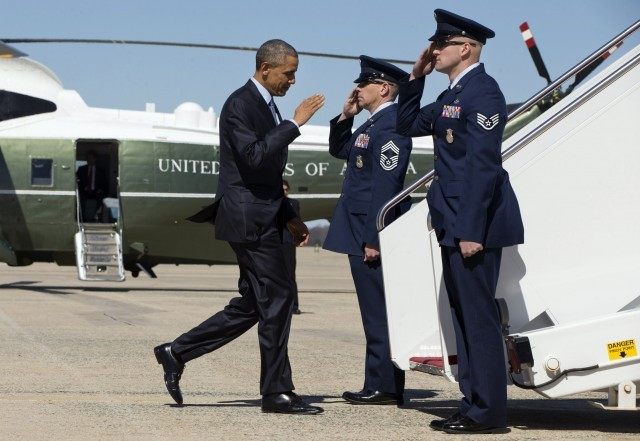WASHINGTON (AP) — President Barack Obama is meeting next week with Afghan President Ashraf Ghani and Chief Executive Abdullah Abdullah and is expected to announce plans to slow down the pace of troop withdrawals between now and the end of 2016 to maintain security in Afghanistan.
Current plans call for a U.S. drawdown to 5,500 troops by year’s end. But the Obama administration has said previously it might keep more troops in Afghanistan next year.
Jeff Eggers of the White House’s National Security Council said Friday the U.S. still intends to pursue its longer-term withdrawal strategy, which calls for a U.S. security cooperation office in Kabul beyond 2016 of about 1,000 U.S. troops, but no major troop presence.
Eggers appeared to leave open the possibility that the U.S. role after 2016 could also be reconsidered. “The question of the post-2016 plan will, of course, flow from that, and it’s fair to say that will need to be considered in the same way given the intent to maintain this ongoing dialogue with President Ghani and his team,” he said.
But officials later said that Eggers was alluding to discussions about the breadth of the U.S. relationship with Afghanistan after 2016, and that the size of the U.S. footprint and the troop levels in Afghanistan that Obama called for in May would not change.
White House spokesman Josh Earnest earlier emphasized that point, saying Obama and his national security team have been discussing changing the pace of the troop drawdown and the rate of base closures in Afghanistan up through the end of 2016 to deal with the security situation in the country.
Earnest said that after 2016, Obama envisions a smaller military footprint designed to protect embassy personnel and to engage in military-to-military relationships with the Afghan armed forces – a figure that experts place at about 1,000 troops.
“That’s been the policy that President Obama put in place a number of years ago. That hasn’t changed,” Earnest said.
“But the United States is interested in making sure that we have a troop presence that can protect forces that are on the ground,” he said. “We want to make sure that we can continue to have some counterterrorism capability in Afghanistan, because there are still extremist elements operating in Afghanistan that do pose a threat to our interests.”

COMMENTS
Please let us know if you're having issues with commenting.